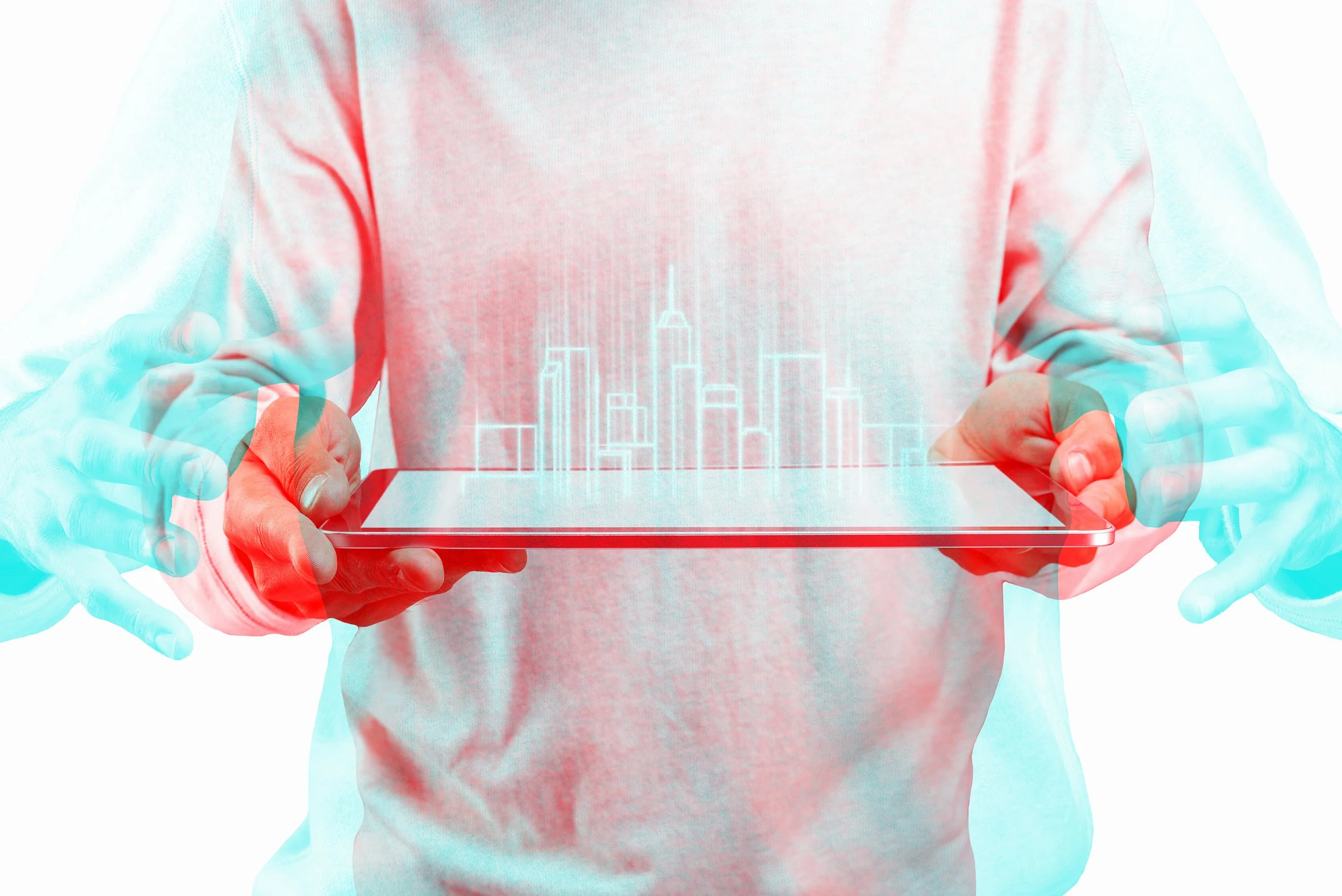10 Emerging Technology Trends in Real Estate
The real estate industry is undergoing a digital transformation, with new technologies emerging to streamline processes and enhance the customer experience. These technologies are changing the way that properties are bought, sold, and managed, and they are enabling real estate professionals to work more efficiently and effectively. Here are 10 emerging technology trends in real estate to keep an eye on:
We live in a time of astounding technological advancements. There are deep-sea drones and live-streaming virtual reality.Jenna WorthamVirtual and Augmented Reality:
Virtual and augmented reality technologies are revolutionizing the way that properties are viewed and marketed. Websites and apps such as Zillow, Redfin, and Realtor.com are offering 3D virtual tours, allowing potential buyers to explore properties from the comfort of their own homes. Websites and apps such as Matterport and Istaging are helping create showrooms in no time.
2. Smart Home Technology:
Smart home technology is becoming increasingly popular, with devices such as Nest thermostats, Ring video doorbells, and Amazon Echo smart speakers being integrated into homes. This technology enables homeowners to control their homes remotely, making it easier to manage energy usage and security.
3. Mobile Apps:
Mobile apps are becoming increasingly popular in the real estate industry, enabling professionals to work remotely and stay connected with clients and peers. Apps such as Brokerloop, RealScout, and Homesnap are providing real estate professionals with valuable tools to manage their businesses on the go.
4. Blockchain:
Blockchain technology is being used to create a more transparent and secure real estate industry. Websites and apps such as Propy and RealT are using blockchain to facilitate property transactions, making them faster and more secure.
Blockchain and smart contracts are two different concepts, although they are often used together in applications.
Blockchain is a distributed ledger technology that allows secure, transparent, and tamper-proof transactions between parties without the need for intermediaries. In simple terms, it is a database that is decentralized and managed by a network of computers instead of a central authority. Each block in the chain contains data and a unique code (hash) that is used to link it to the previous block, creating a chain of blocks.
Smart contracts, on the other hand, are self-executing contracts that are written in code and stored on a blockchain. They allow parties to execute transactions automatically when certain conditions are met. For example, a smart contract can be created to release funds to a seller only when a buyer has received and approved the product or service they purchased. Smart contracts can be programmed to automate a wide range of processes and eliminate the need for intermediaries, which can reduce costs and increase efficiency.
In summary, blockchain is a technology that allows secure and transparent transactions, while smart contracts are a specific application of blockchain that allows for the creation of self-executing contracts.
5. Predictive Analytics:
Predictive analytics is being used to forecast market trends and predict the future value of properties. Websites and apps such as HouseCanary and Zillow are using predictive analytics to provide real estate professionals with valuable insights.
6. Artificial Intelligence:
Artificial intelligence is being used to automate tasks and streamline processes in the real estate industry. Websites and apps such as OJO Labs and REX are using AI-powered chatbots to provide customer service and streamline the home buying process.
7. Drones:
Drones are being used to provide aerial views of properties and to capture footage for marketing purposes. Websites and apps such as ZeitView (former DroneBase) and FlyGuys are providing real estate professionals with affordable and easy-to-use drone services.
8. Internet of Things (IoT):
It refers to the network of physical devices, vehicles, home appliances, and other items embedded with electronics, software, sensors, and connectivity which allows them to connect, collect, and exchange data. Some examples of IoT devices include:
Connected Cars: Cars with built-in sensors and connectivity can provide real-time data on traffic, road conditions, and vehicle performance.
Smart City Infrastructure: Smart cities use IoT to manage public transportation, traffic, parking, street lighting, waste management, and more.
9. Big Data:
Big data is being used to analyze large amounts of information and provide insights into the real estate industry. Websites and apps such as Trulia and Redfin are using big data to provide real estate professionals with valuable market insights and trends. We recommend you check out our blog “Exploring the Impact of Technology and Big Data on Financial Services” to gain more insights into how these technologies are disrupting the way we operate and why big companies are incorporating big data in their operating systems.
10. Smart Contracts:
Smart contracts are self-executing contracts with the terms of the agreement between buyer and seller being directly written into lines of code. They are blockchain-based and allow for the automation of the entire contract process, from negotiation to performance to payment.
In real estate, smart contracts can be used to automate property transfers, manage lease agreements, and facilitate the payment of rent or mortgage. By using smart contracts, the process of buying or selling a property can be streamlined and made more efficient.
Smart contracts can also help reduce the potential for fraud and errors in the real estate transaction process, making it more secure for all parties involved. Examples of smart contract platforms in real estate include Propy and Ubitquity. These platforms enable users to securely and efficiently transfer property ownership using blockchain technology and smart contracts.
In conclusion,
The world of real estate is rapidly changing with the integration of new technologies and software. As a result, it's crucial to stay up to date with the latest trends and advancements to stay competitive and meet the evolving needs of clients.
At SignDay, we understand the importance of staying on top of these emerging trends and offer on-demand support for solo entrepreneurs and growing businesses, with a special focus on the legal and real estate industries.
We hope this article has shed some light on the top ten emerging technologies in real estate, and we invite you to share your thoughts and experiences with these new trends in the comments section below. Let's continue the conversation and help each other navigate this exciting and ever-changing industry.

